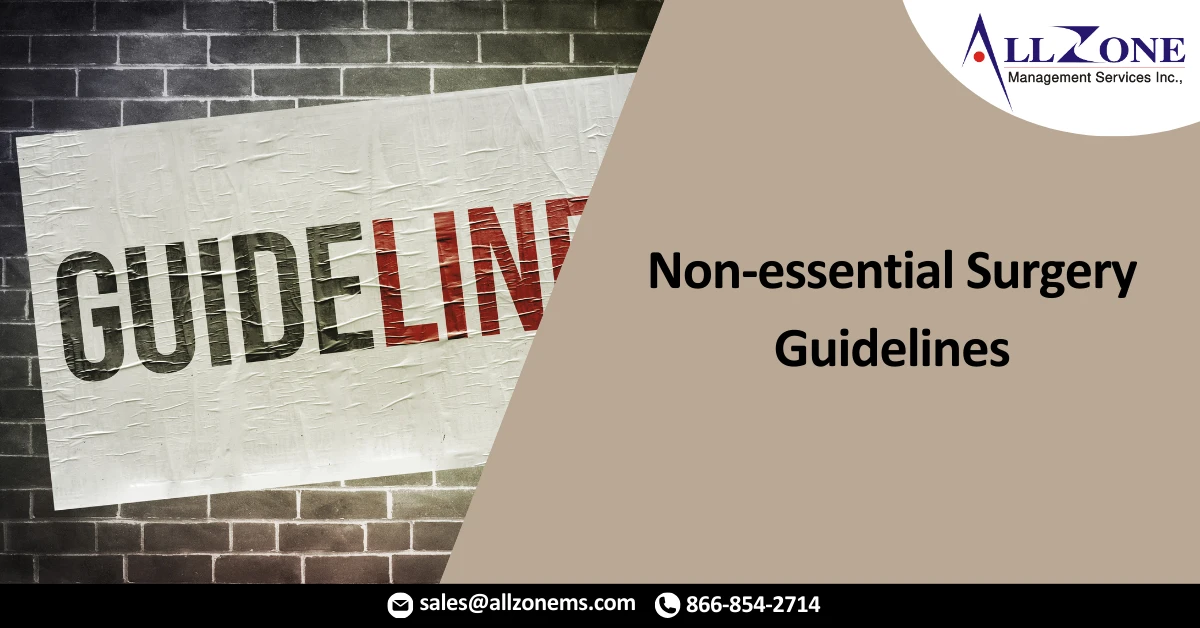CMS wants all providers to cancel or postpone all low-acuity surgeries.
The Centers for Medicare & Medicaid Services (CMS) is limiting “all non-essential planned surgeries and procedures, including dental, until further notice,” according to statement the agency released March 18. This measure is designed to have a twofold effect: increase the amount of ventilators and personal protective equipment (PPE); and reduce the exposure and spread of COVID-19.
Recommendations Inform Decision Makers
CMS stresses that it is providing guidance to “inform health systems as they consider resources and how best to provide surgical services and procedures to those whose condition requires emergent or urgent attention to save a life, preserve organ function, and avoid further harms from underlying condition or disease.” However, CMS is leaving the decisions on resource allocation to local entities, for now.
“Decisions remain the responsibility of local healthcare delivery systems, including state and local health officials, and those surgeons who have direct responsibility to their patients. However, in analyzing the risk and benefit of any planned procedure, not only must the clinical situation be evaluated, but resource conservation must also be considered,” CMS said in the March 15 statement.
To help local decision makers in these situations, CMS devised a tiered framework that weighs recommended action relative to general procedure severity: For surgeries in the lowest tier — Tier 1a — CMS recommends postponing these procedures, as they are defined as “Low acuity surgery/healthy patient outpatient surgery,” with a patient who has a “Not life threatening illness.” Surgeries that could fall into this tier include — but are not limited to — carpal tunnel release, esophagogastroduodenoscopy (EGD), colonoscopy, and cataract surgery.
Tier 3b — the highest tier — lists surgeries that CMS categorizes as “Do not postpone — high acuity.” These surgeries include — but are not limited to — organ transplants for unhealthy patients, treatment for trauma patients, caring for patients with emergent cardiac symptoms, and patients who have limb-threatening vascular issues.
“These recommendations are meant to be refined over the duration of the crisis based on feedback from subject matter experts. At all times, the supply of personal protective equipment (PPE), hospital and intensive care unit beds, and ventilators should be considered, even in areas that are not currently dealing with COVID-19 infections,” CMS says in the statement.
Use This List to Inform Surgical Decisions
CMS wants healthcare facilitators to use its suggested tiered framework as a general guide on whether to postpone/cancel surgeries, and then make individual decisions considering the following factors:
- Current and projected COVID-19 cases in the facility and region
- Supply of PPE to the facilities in the system
- Staffing availability
- Bed availability, especially intensive care unit (ICU) beds
- Ventilator availability
- Health and age of the patient, especially given the risks of concurrent COVID-19 infection during recovery
- Urgency of the procedure
For More Information: https://www.aapc.com/blog/50026-covid-19-causes-cms-to-issue-nonessential-surgery-guidelines/

